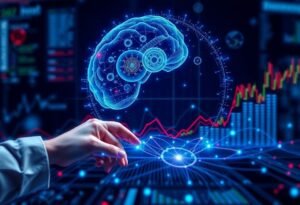Artificial Intelligence (AI) is revolutionizing healthcare, pushing the boundaries of innovation and improving patient outcomes. Its impact is profound, ranging from diagnostics to treatment protocols, making healthcare more efficient and accessible than ever before.
Innovations in Diagnostic Accuracy
AI technologies are enhancing diagnostic accuracy through machine learning algorithms that can analyze vast amounts of data quickly. For instance, AI-driven tools can review medical images, identifying conditions such as cancer at unprecedented speeds while also reducing human error. Recent studies suggest that AI can outperform human radiologists, especially in detecting subtle anomalies. This shift not only improves patient outcomes by enabling earlier intervention but also streamlines the diagnostic process, making it less time-consuming and more reliable.
Clinical Decision Support Systems
Clinical Decision Support Systems (CDSS) are utilizing AI to guide healthcare providers in making better decisions. Through data analytics, these systems analyze patient records and treatment histories to recommend personalized treatment plans. This innovation minimizes the risk of human error and ensures that patients receive tailored therapies suited to their unique needs. As a result, healthcare providers can make more informed decisions, ultimately leading to improved patient care and better health outcomes.
Operational Efficiency in Healthcare
AI is also boosting operational efficiency in healthcare settings, automating routine administrative tasks. For example, AI-powered chatbots can handle appointment scheduling and patient inquiries, freeing up valuable time for healthcare staff. This innovation not only improves workflow but also enhances patient satisfaction by reducing wait times and ensuring prompt responses to queries. Healthcare facilities are increasingly adopting these technologies to optimize operations and reduce costs.
Telemedicine and Remote Monitoring
The rise of telemedicine is another significant contribution of AI in healthcare. AI algorithms can monitor patient conditions remotely, providing healthcare providers with real-time data. This capability is particularly beneficial for chronic disease management, as it allows providers to intervene before complications arise. Telemedicine solutions powered by AI are expanding access to care, especially in underserved areas, thereby improving overall health equity.
Personalized Medicine Advances
With the advent of AI, personalized medicine is becoming a reality. By analyzing genetic information and lifestyle data, AI models can predict how patients will respond to specific treatments. This innovation empowers healthcare providers to tailor interventions to individual patients rather than adopting a one-size-fits-all approach. By embracing AI in personalized medicine, healthcare systems can ensure higher efficacy in treatments and better patient satisfaction.
Future of AI in Healthcare Innovation
The future of AI in healthcare is promising and filled with potential. As technology evolves, we can expect to see more sophisticated applications that further enhance innovative healthcare solutions. From predictive analytics to robotics-assisted surgeries, the possibilities are endless. Embracing this transformation will be essential for improving healthcare delivery, increasing efficiency, and ultimately saving lives.
Disclaimer: This article is intended for informational purposes only and should not be considered medical advice.





















